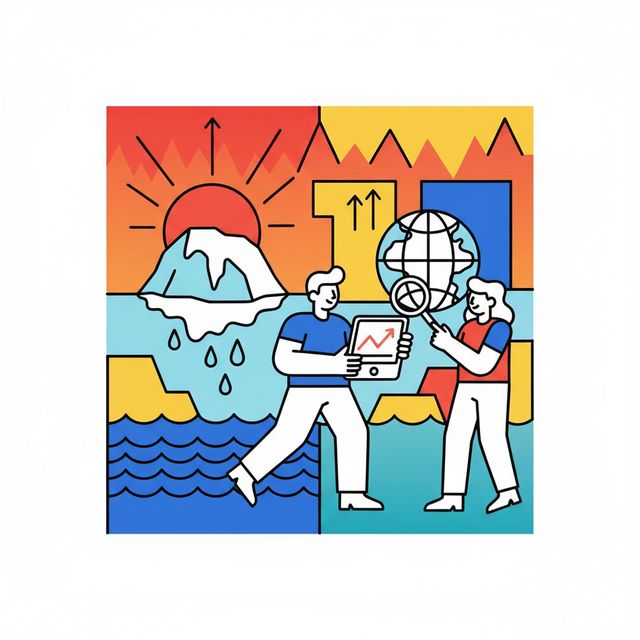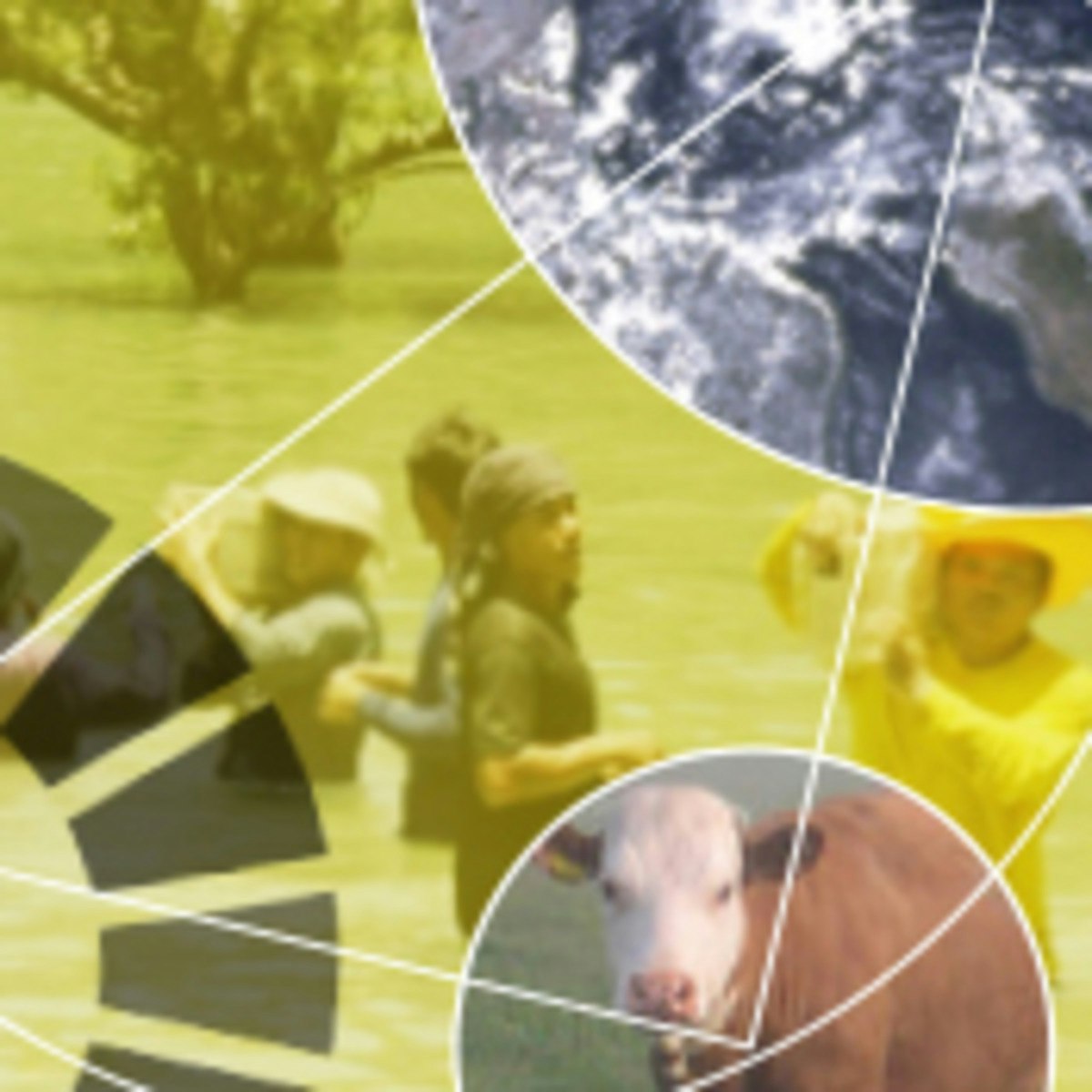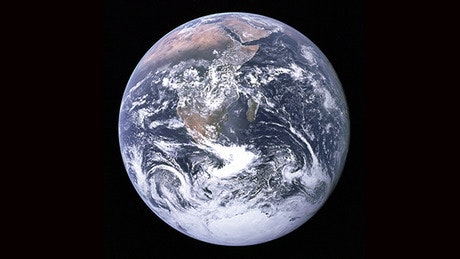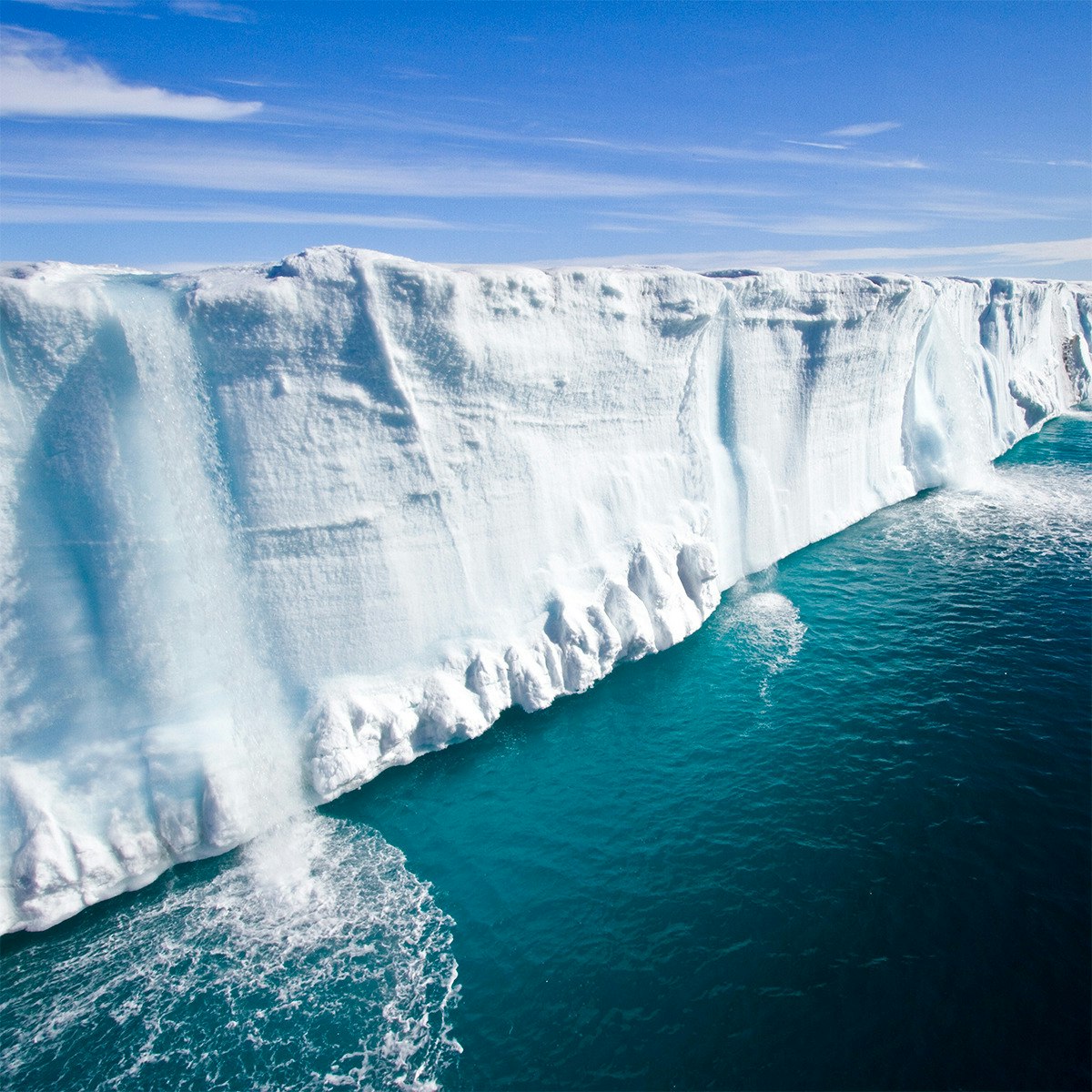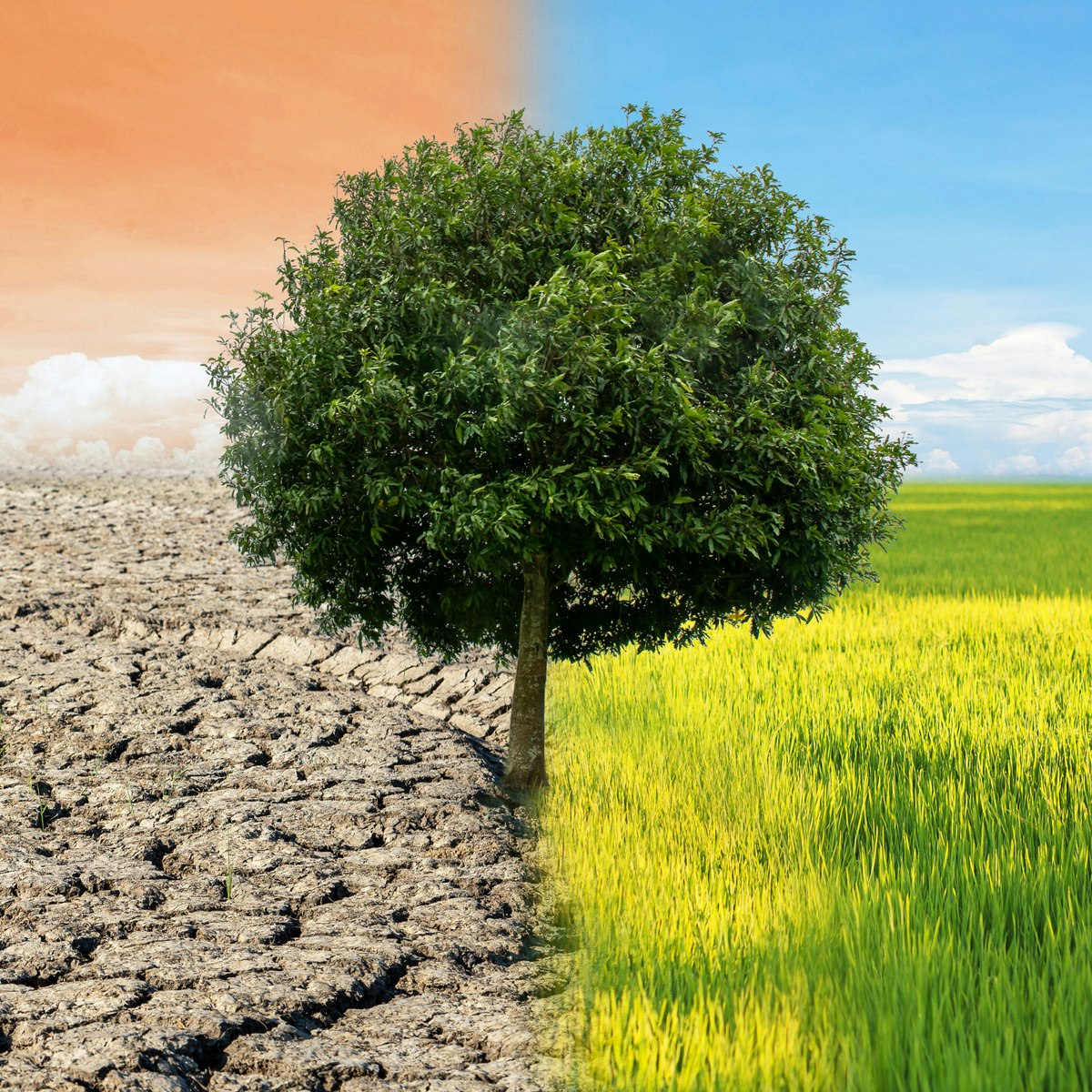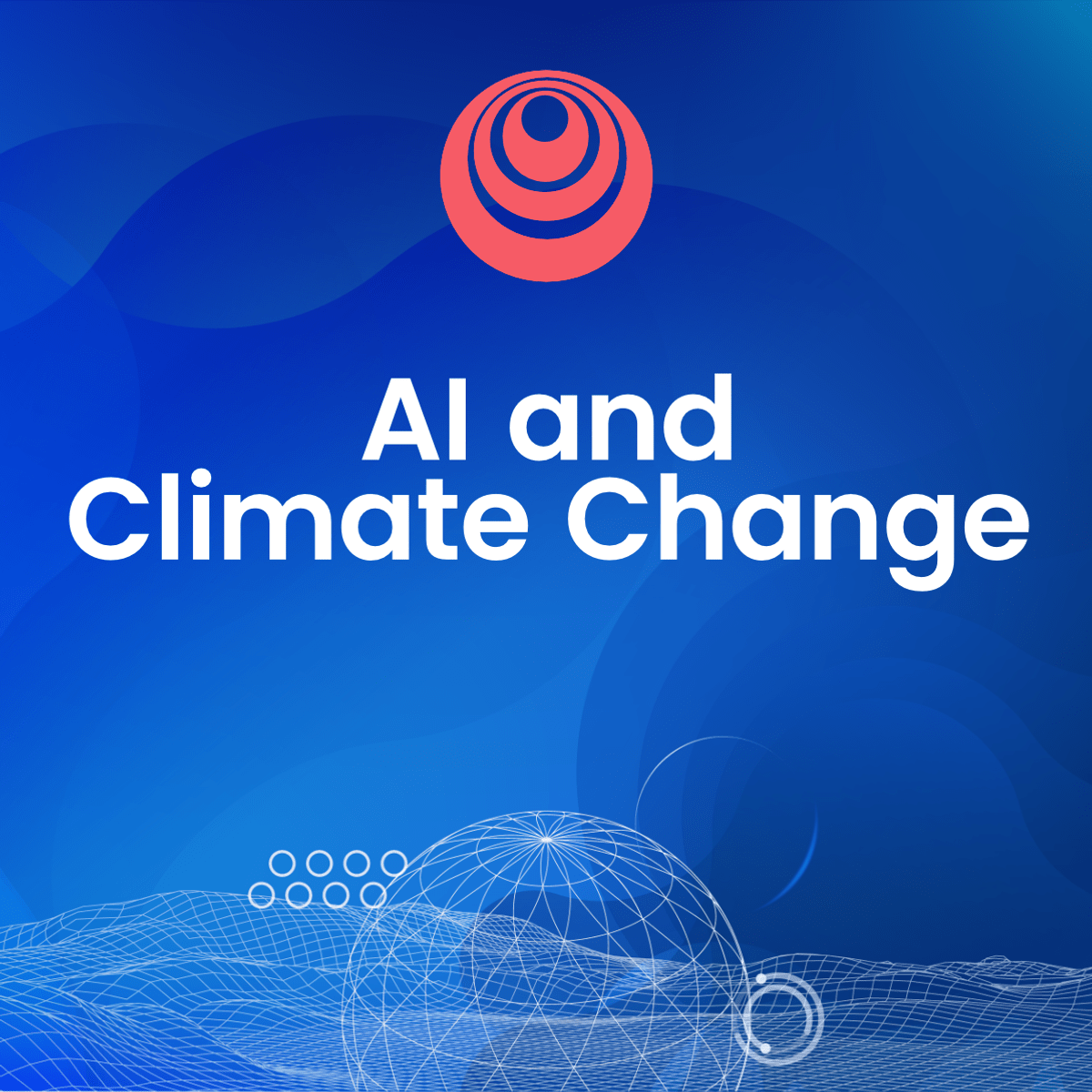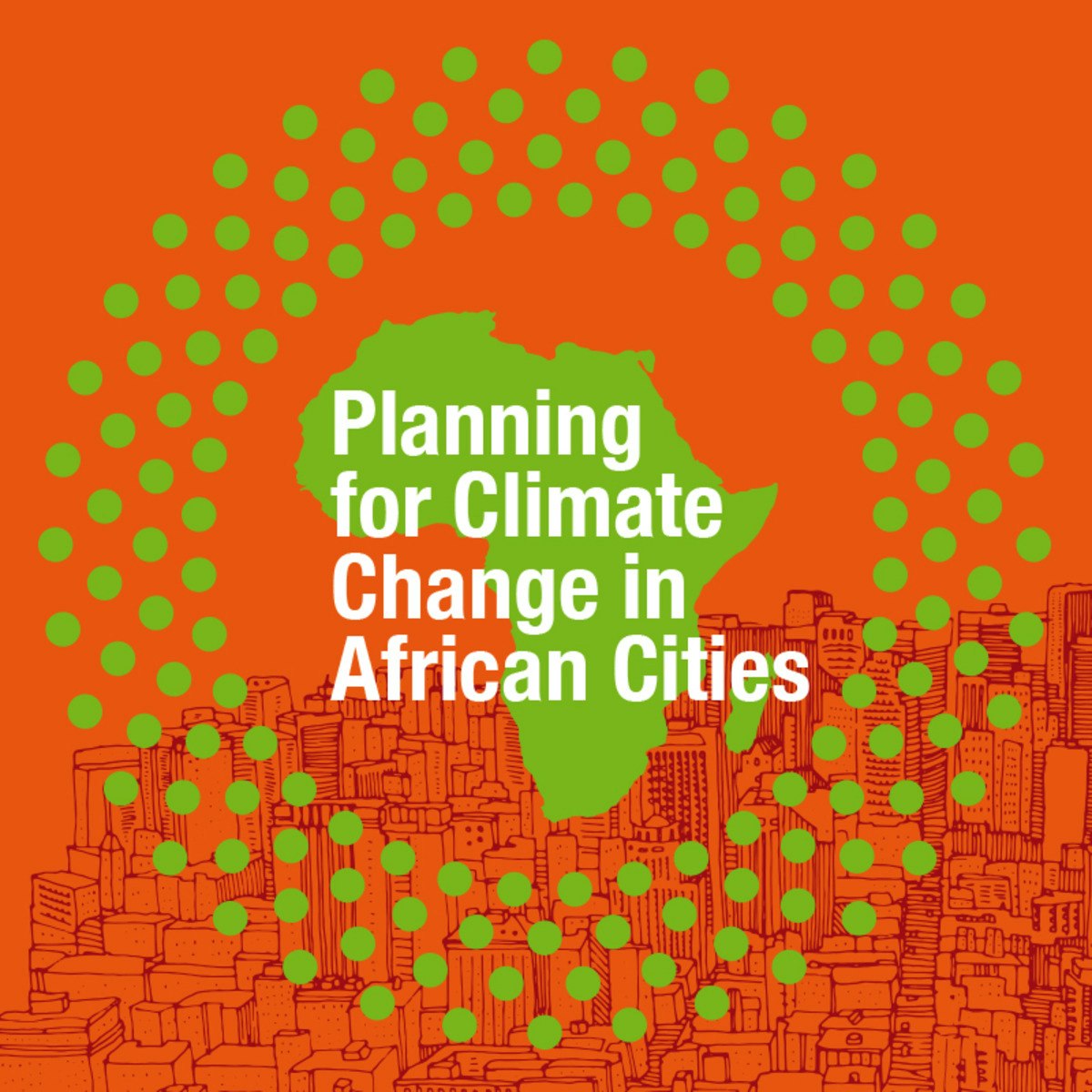Climate Change Analyst
Exploring a Career as a Climate Change Analyst
Climate change analysts play a crucial role in understanding and addressing one of the most significant challenges of our time. They are specialized professionals who research and analyze climate data, assess the impacts of climate change, and evaluate strategies for mitigation and adaptation. Their work involves interpreting complex scientific information, modeling future climate scenarios, and often translating these findings into actionable insights for policymakers, businesses, and the public.
Working as a climate change analyst can be deeply engaging. It offers the opportunity to contribute directly to solutions for a global crisis, blending scientific rigor with real-world application. The field is inherently interdisciplinary, drawing on environmental science, data analysis, economics, policy, and communication, making it intellectually stimulating. For those passionate about environmental stewardship and problem-solving, this career path can be incredibly rewarding.
What Does a Climate Change Analyst Do?
Defining the Role and Core Responsibilities
At its heart, a climate change analyst examines the intricate relationship between human activities and the Earth's climate system. They collect and scrutinize data related to greenhouse gas emissions, temperature changes, sea-level rise, and extreme weather events. A core responsibility is using this data to understand past trends, present conditions, and potential future climate scenarios through sophisticated modeling techniques.
Analysts often evaluate the effectiveness of existing climate policies and propose new strategies. This involves assessing the environmental and economic impacts of different approaches to reducing emissions or adapting to unavoidable climate effects. They prepare detailed reports, scientific papers, policy briefs, and presentations to communicate their findings clearly and effectively to diverse audiences, ranging from technical experts to government officials and the general public.
Their work informs critical decisions in various sectors. For instance, an analyst might help a city develop a climate adaptation plan, advise a company on reducing its carbon footprint, or contribute research to international climate negotiations. The role demands a blend of quantitative skills, critical thinking, and the ability to bridge the gap between complex science and practical action.
To gain a foundational understanding of the challenges and frameworks involved, consider exploring introductory resources on climate change and its impacts.
Distinguishing Climate Analysts from Related Roles
While the role of a climate change analyst shares similarities with other environmental professions, there are key distinctions. Environmental scientists often have a broader focus, studying various aspects of ecosystems and environmental health, which might include but isn't limited to climate change. Their work might involve more fieldwork or laboratory research focused on specific environmental media like air, water, or soil.
Meteorologists primarily focus on short-term weather forecasting and atmospheric conditions, whereas climate change analysts concentrate on long-term climate trends and patterns, often spanning decades or centuries. While both use atmospheric data, their time scales and objectives differ significantly.
Sustainability consultants or managers help organizations implement environmentally friendly practices, which often includes reducing carbon emissions. However, their role typically encompasses a wider range of sustainability issues beyond climate change, such as waste reduction, resource efficiency, and social responsibility. Climate change analysts usually possess deeper expertise specifically in climate science, modeling, and policy implications related to climate.
Where Do Climate Change Analysts Work?
Climate change analysts find employment across a diverse range of organizations. Government agencies at local, state, federal, and international levels are major employers. Here, analysts contribute to policy development, regulatory compliance, environmental monitoring, and research initiatives aimed at understanding and managing climate impacts.
Non-governmental organizations (NGOs) and non-profits focused on environmental advocacy, conservation, and international development also rely heavily on climate analysts. In these roles, analysts might conduct research to support advocacy campaigns, develop climate resilience projects for vulnerable communities, or contribute to global climate policy discussions.
The private sector increasingly hires climate change analysts, particularly within consulting firms, financial institutions, and large corporations. Consultancies advise businesses on climate risk assessment, decarbonization strategies, and sustainability reporting. Financial institutions employ analysts to evaluate climate-related investment risks and opportunities. Corporations may hire analysts to manage their environmental footprint, comply with regulations, and develop sustainable business models.
Research institutions and universities are also significant employers, where analysts focus on advancing climate science, developing new modeling techniques, and educating the next generation of climate professionals. The demand spans across public, private, and non-profit sectors, reflecting the growing recognition of climate change as a critical issue.
Essential Skills and Knowledge
Technical Proficiency: Tools of the Trade
Climate change analysis relies heavily on specialized technical skills. Proficiency in Geographic Information Systems (GIS) software is often essential for mapping climate impacts, analyzing spatial data related to vulnerability, and visualizing environmental changes. Familiarity with remote sensing techniques and data interpretation (e.g., satellite imagery) is also highly valuable for monitoring land use change, ice melt, and other large-scale phenomena.
Experience with climate modeling software and understanding climate model outputs are key competencies. Analysts need to be able to work with complex datasets, run simulations, or interpret the results generated by climate models to project future scenarios and assess potential impacts under different emission pathways.
Strong quantitative skills, including statistics and data analysis, are fundamental. Analysts must be comfortable handling large datasets, performing statistical analyses to identify trends and correlations, and using programming languages like Python or R for data manipulation, analysis, and visualization. These technical skills form the bedrock of rigorous climate analysis.
These courses provide introductions to relevant geospatial and data analysis tools often used in the field.
Analytical Acumen: Interpreting Data and Policy
Beyond technical tools, climate change analysts require sharp analytical skills. They must be adept at interpreting complex scientific data, identifying patterns, uncertainties, and potential biases. This involves critically evaluating research findings, understanding the limitations of climate models, and synthesizing information from diverse sources to form coherent conclusions.
Policy analysis is another crucial skill. Analysts need to understand the legislative and regulatory landscape related to climate change, evaluate the potential effectiveness and economic implications of different policy options (like carbon pricing or renewable energy mandates), and assess how policies might impact various stakeholders and sectors.
Problem-solving is central to the role. Analysts are often tasked with tackling multifaceted challenges, such as designing adaptation strategies for specific regions or identifying cost-effective pathways for emission reductions. This requires creative thinking, the ability to break down complex problems into manageable parts, and developing evidence-based recommendations.
These skills allow analysts to move beyond simply processing data to providing meaningful insights and strategic guidance.
Communication Skills: Bridging Science and Action
Effective communication is paramount for climate change analysts. They must be able to translate highly technical scientific concepts and complex data into clear, concise, and compelling language understandable by non-experts. This includes policymakers, business leaders, community groups, and the general public.
Strong writing skills are essential for producing reports, policy briefs, research summaries, and grant proposals. Analysts need to structure arguments logically, present evidence effectively, and tailor their writing style to different audiences and purposes. Visual communication skills, such as creating informative graphs, charts, and maps, are also vital for conveying data and trends effectively.
Oral presentation skills are equally important. Analysts frequently present their findings at meetings, conferences, and public forums. They need to articulate complex ideas clearly, engage their audience, and respond thoughtfully to questions and feedback. Building relationships and collaborating effectively with stakeholders from diverse backgrounds is also key to ensuring that analysis informs real-world decisions.
Industries Seeking Climate Expertise
Public Sector Opportunities
Government bodies remain primary employers for climate change analysts. At the national level, agencies like environmental protection agencies, energy departments, and meteorological services require analysts for research, policy development, and monitoring climate trends. They contribute to national climate strategies, international reporting obligations (such as under the Paris Agreement), and regulatory enforcement.
State and local governments are increasingly hiring analysts to address regional climate impacts. Cities and counties need experts to develop climate action plans, assess local vulnerabilities (e.g., to sea-level rise or heatwaves), and implement adaptation measures for infrastructure and public services. This local focus offers opportunities to see the direct impact of one's work on community resilience.
International organizations, such as the United Nations Framework Convention on Climate Change (UNFCCC) secretariat, the World Bank, and regional development banks, also employ analysts. These roles often involve supporting international negotiations, financing climate projects in developing countries, or conducting global climate assessments.
Private Sector Roles and Green Technology
The private sector's demand for climate change analysts is rapidly growing. Consulting firms specializing in environment, sustainability, and risk management hire analysts to advise corporate clients on navigating climate regulations, managing climate-related risks (physical and transitional), setting emission reduction targets, and developing sustainability strategies.
Financial institutions, including banks, investment firms, and insurance companies, are increasingly integrating climate considerations into their operations. Analysts in this sector assess climate risks within investment portfolios, develop green finance products, and evaluate the climate impact of lending activities. This reflects a growing awareness of the financial materiality of climate change.
Companies in sectors heavily impacted by climate change or regulation – such as energy, agriculture, manufacturing, and transportation – are also hiring in-house analysts. These professionals help companies understand their climate footprint, identify opportunities in the transition to a low-carbon economy (e.g., in renewable energy or green technology), and ensure compliance with evolving environmental standards.
Cross-Industry Applications
The expertise of climate change analysts is valuable across a surprisingly wide range of industries beyond the obvious environmental and energy sectors. Urban planning and development require climate analysis to design resilient cities, manage infrastructure risks, and promote sustainable transportation.
Agriculture and food systems need analysts to understand climate impacts on crop yields, develop climate-resilient farming practices, and assess the carbon footprint of food production. Water resource management relies on climate analysis to predict changes in water availability, manage drought and flood risks, and plan for future water needs.
Even fields like public health utilize climate analysts to study the links between climate change and health outcomes (e.g., heat stress, vector-borne diseases) and develop public health adaptation strategies. The cross-cutting nature of climate change means that analytical skills in this area are becoming increasingly relevant across the economy. Explore Environmental Sciences and Sustainability topics on OpenCourser to see the breadth of applications.
This course highlights the crucial intersection of climate change and public health.
Navigating Your Career Path
Starting Your Journey: Entry-Level Roles
Entry into the field often begins with roles like research assistant, data analyst, environmental technician, or junior policy analyst. These positions typically involve supporting senior analysts by collecting data, conducting literature reviews, performing basic analyses, assisting with fieldwork, or helping prepare reports and presentations.
Internships during or after academic studies are highly valuable for gaining practical experience and making professional connections. Many government agencies, NGOs, and consulting firms offer internships related to climate change analysis or environmental policy. These experiences provide exposure to real-world projects and the day-to-day work involved.
Entry-level roles provide essential foundational experience. They allow individuals to develop core technical and analytical skills, understand organizational processes, and begin specializing in specific areas of climate change analysis, such as modeling, adaptation planning, or policy research.
Mid-Career Growth and Specialization
With experience, climate change analysts typically take on more responsibility and specialize. Mid-career professionals might lead specific research projects, manage data analysis tasks, develop climate models, or focus on particular sectors like energy, water, or agriculture. Specialization allows for deeper expertise and greater impact within a chosen niche.
Opportunities arise to focus on specific aspects like climate risk assessment, adaptation strategy development, greenhouse gas inventory management, or climate finance analysis. Analysts might become experts in specific tools or methodologies, such as advanced GIS techniques, integrated assessment modeling, or life cycle assessment.
Pursuing advanced degrees (Master's or PhD) or professional certifications can facilitate specialization and career advancement. Mid-career roles often involve mentoring junior staff, managing small teams, and playing a more significant role in shaping organizational strategies or research directions.
Reaching Leadership Positions
Senior climate change analysts often move into leadership positions where they oversee entire programs, departments, or research groups. Roles like Senior Climate Scientist, Director of Climate Policy, Chief Sustainability Officer, or Principal Consultant involve setting strategic direction, managing large budgets and teams, and representing the organization externally.
Leadership roles require not only deep technical and analytical expertise but also strong management, strategic planning, and communication skills. Leaders often engage with high-level stakeholders, influence major policy or investment decisions, and shape the broader discourse on climate change within their sector or field.
The path to leadership often involves a proven track record of impactful work, significant contributions to the field, and the ability to inspire and guide others. These positions offer the potential to drive substantial change and contribute significantly to addressing the climate crisis at scale.
Educational Foundations
Relevant Undergraduate Degrees
A bachelor's degree is typically the minimum educational requirement for entry-level positions. Relevant majors provide the necessary scientific and analytical foundation. Environmental Science or Environmental Studies programs offer broad training in Earth systems, ecology, and environmental problem-solving.
Degrees in Geography are also highly relevant, particularly those with a focus on physical geography, climatology, or Geographic Information Systems (GIS). Atmospheric Science or Meteorology programs provide deep knowledge of climate dynamics and weather systems. Engineering disciplines, especially environmental or civil engineering, can be valuable for roles focused on infrastructure adaptation or mitigation technologies.
Other relevant fields include Earth Science, Geology, Ecology, Biology, Physics, Chemistry, Statistics, Mathematics, Economics, and Public Policy. A strong foundation in quantitative methods and scientific principles is generally more important than the specific degree title. Supplementing a degree with relevant coursework in data analysis, programming, or policy is often beneficial.
This course provides a good overview of Earth systems relevant to climate analysis.
Graduate Programs and Certifications
For more specialized roles, research positions, or faster career advancement, a graduate degree (Master's or PhD) is often preferred or required. Master's programs in Environmental Science, Climate Science, Environmental Management, Public Policy (with an environmental focus), or related fields provide advanced training and specialization opportunities.
Doctoral programs (PhDs) are typically necessary for high-level research positions in academia or specialized government labs. A PhD involves intensive research training and contributing original knowledge to the field. It equips graduates with deep expertise in a specific area of climate science or policy.
Professional certifications can also enhance credentials, although the field doesn't have a single dominant certification like some other professions. Certifications related to GIS (e.g., GISP), sustainability (e.g., LEED Green Associate, ISSP-SA), or specific technical areas may be beneficial depending on the desired career path. Continuous learning through workshops and specialized training is crucial regardless of formal qualifications.
The Role of Research Experience
Gaining research experience, even during undergraduate studies, is highly advantageous. Assisting faculty with research projects, completing an honors thesis, or participating in summer research programs provides hands-on experience with data collection, analysis, modeling, and scientific writing.
Research experience demonstrates analytical aptitude, problem-solving skills, and the ability to work independently or as part of a team on complex questions. It is particularly crucial for those considering graduate studies or careers in research-intensive organizations.
Presenting research at student symposiums or conferences, or contributing to publications, further strengthens a candidate's profile. This experience showcases communication skills and engagement with the broader scientific community, setting applicants apart in a competitive job market.
Alternative Learning Pathways and Skill Development
Building Skills Through Online Courses and Projects
For those transitioning careers or seeking to supplement formal education, online courses offer flexible and accessible pathways to acquire essential skills. Platforms like OpenCourser list thousands of courses covering topics from Climate Science fundamentals and Data Analysis to GIS, policy, and sustainability.
Online learning allows you to tailor your education to specific skill gaps or areas of interest. You can learn programming languages like Python for data analysis, master GIS software, delve into climate modeling principles, or understand the economics of climate policy at your own pace. Many courses offer certificates upon completion, which can be valuable additions to a resume.
Supplementing coursework with independent projects is crucial for demonstrating practical application. Analyze publicly available climate datasets, create maps visualizing local climate impacts using GIS, develop a mock policy brief on a specific climate issue, or contribute to open-source climate data platforms. These projects build a portfolio showcasing your abilities to potential employers.
Feeling overwhelmed by the transition? That's completely normal. Breaking down the learning process into smaller steps, focusing on one skill at a time, and celebrating small victories can make the journey feel more manageable. Remember, many successful analysts came from diverse backgrounds; your unique perspective can be an asset. Utilize resources like the OpenCourser Learner's Guide for tips on structuring your self-learning.
These courses cover fundamental climate concepts, solutions, and risk management, suitable for building foundational knowledge online.
This book offers insights into the broader context of sustainability.
Micro-credentials and Specialized Training
Beyond full degree programs or comprehensive online courses, micro-credentials and specialized training programs offer focused skill development. These might include bootcamps focused on data science or coding, workshops on specific climate modeling software, or short courses on climate risk reporting frameworks (like TCFD).
Universities and professional organizations often offer executive education programs or certificates targeting specific aspects of climate change, such as climate finance, sustainable business strategy, or climate law and policy. These can be particularly valuable for professionals seeking to pivot or deepen their expertise in a niche area.
Look for training opportunities provided by reputable institutions or industry bodies. While the field is evolving, demonstrating proficiency through targeted, high-quality training can significantly boost your credibility and marketability, especially when combined with practical project experience.
Combining Formal and Informal Learning
Often, the most effective path involves blending formal education with continuous informal learning. A foundational degree might provide the core scientific or policy knowledge, while online courses and independent projects fill specific skill gaps or allow exploration of emerging topics.
Staying current in this rapidly evolving field is essential. Regularly reading scientific journals, policy reports, and reputable news sources covering climate change is crucial. Following leading researchers, organizations, and think tanks on social media or through newsletters can provide timely updates.
Attending webinars, workshops, and conferences (even virtual ones) offers opportunities to learn about the latest developments, network with peers, and gain new perspectives. Engaging with the broader climate community, participating in relevant online forums, or volunteering with environmental organizations can also provide valuable learning experiences and connections. A proactive approach to lifelong learning is key to success.
Consider saving relevant courses and books to your OpenCourser list to build a personalized learning plan.
These books provide deeper dives into sustainability concepts and challenges.
The Role of Analysis in Policy and Governance
Informing International Agreements
Climate change analysts play a vital, often behind-the-scenes, role in shaping international climate agreements like the Paris Agreement. Their research and analysis provide the scientific foundation upon which negotiations are based. Analysts contribute to major assessment reports, such as those by the Intergovernmental Panel on Climate Change (IPCC), which synthesize the current state of climate science, impacts, and mitigation options.
National governments rely on analysts to evaluate potential commitments, understand the implications of different negotiation outcomes, and develop national positions. Analysts help quantify emission reduction targets, assess the feasibility of mitigation pathways, and analyze adaptation needs, providing crucial data to inform diplomatic efforts.
Their work continues after agreements are reached, involving monitoring progress towards national targets, analyzing the effectiveness of implemented policies, and contributing to periodic reviews and updates under the agreement frameworks. This ensures that international climate action remains grounded in scientific evidence.
Policy Impact Assessment
A core function of climate change analysts, particularly those in government or consulting, is assessing the potential impacts of proposed climate policies. This involves using quantitative models and qualitative analysis to evaluate how different policy options – such as carbon taxes, emissions trading schemes, renewable portfolio standards, or energy efficiency regulations – might affect greenhouse gas emissions, the economy, specific industries, and different societal groups.
Impact assessments aim to provide policymakers with objective information about the trade-offs involved in different policy choices. Analysts examine potential costs, benefits, effectiveness in achieving climate goals, distributional consequences (i.e., who wins and who loses), and potential unintended side effects.
Methodologies for impact assessment can range from complex integrated assessment models (IAMs) that simulate interactions between the climate system and the economy, to more focused cost-benefit analyses or sector-specific modeling. The goal is to ensure that policy decisions are well-informed and based on a thorough understanding of their likely consequences.
Ethical Considerations in Communication
Presenting climate change information carries significant ethical responsibilities. Analysts must strive for accuracy, objectivity, and transparency in their communication. This involves clearly stating assumptions, acknowledging uncertainties in data and models, and avoiding exaggeration or downplaying of risks.
Representing the scientific consensus accurately is crucial, especially given the politicized nature of climate change discussions. Analysts have an ethical obligation to differentiate between established scientific findings and more speculative or uncertain projections.
Communicating potential impacts, particularly on vulnerable populations, requires sensitivity. Analysts should consider how their findings might be interpreted and used, aiming to empower informed decision-making rather than causing undue alarm or apathy. Maintaining scientific integrity and communicating honestly, even when findings are complex or politically inconvenient, is fundamental to the credibility and effectiveness of climate change analysis.
Emerging Technologies Shaping the Field
AI and Machine Learning in Climate Modeling
Artificial Intelligence (AI) and Machine Learning (ML) are increasingly being applied to climate change analysis, offering powerful new tools. These technologies can help process vast amounts of climate data more efficiently, identify complex patterns that might be missed by traditional methods, and improve the accuracy of climate models.
AI can enhance climate projections by improving the representation of intricate processes like cloud formation or ocean currents within models. ML algorithms can also be used for "downscaling" global climate model outputs to provide more detailed, localized climate predictions relevant for regional impact assessments and adaptation planning.
Furthermore, AI is being used to optimize energy systems for higher efficiency and better integration of renewables, predict extreme weather events with greater accuracy, and monitor deforestation or land-use change using satellite imagery. While still an emerging area, AI holds significant promise for accelerating climate research and developing more effective solutions.
Advancements in Remote Sensing
Remote sensing technology, primarily through satellites but also drones and ground-based sensors, continues to advance rapidly, providing ever more detailed and frequent data about the Earth's systems. Higher resolution imagery, new sensor types (like LiDAR and advanced radar), and improved data processing techniques allow for more precise monitoring of key climate indicators.
Analysts use remote sensing data to track glacier melt, sea-level rise, changes in vegetation cover, deforestation rates, atmospheric composition (including greenhouse gas concentrations), and the extent and intensity of wildfires or floods. These observations are crucial for validating climate models, assessing climate impacts, and monitoring the effectiveness of mitigation efforts.
The increasing availability of free and open satellite data from programs like Landsat and Sentinel, combined with cloud computing platforms like Google Earth Engine, has democratized access to powerful remote sensing capabilities, enabling more researchers and analysts worldwide to utilize these tools.
Open-Source Data and Collaboration Platforms
The trend towards open-source data and collaborative platforms is transforming climate change analysis. Many government agencies, research institutions, and international organizations now make vast climate datasets publicly available, fostering transparency and enabling broader scientific participation.
Platforms like the IPCC Data Distribution Centre or various national climate data portals provide access to model outputs, observational records, and emissions inventories. Open-source software tools for data analysis (like Python and R libraries) and climate modeling further lower barriers to entry and encourage innovation.
Collaborative online platforms and initiatives facilitate data sharing, code development, and joint research efforts among scientists globally. This open approach accelerates scientific progress, allows for greater scrutiny and replication of results, and helps build a more comprehensive understanding of climate change through diverse contributions.
Global Challenges and Realities
Addressing Data Gaps and Disparities
While global climate monitoring has improved, significant data gaps persist, particularly in developing nations and remote regions like the deep oceans or polar areas. Lack of robust historical data and limited observational networks can hinder accurate assessment of local climate trends, impacts, and vulnerabilities in these regions.
These data disparities can exacerbate inequalities, as the regions often most vulnerable to climate change may lack the information needed for effective adaptation planning. Addressing these gaps requires international collaboration, investment in monitoring infrastructure, capacity building for local scientists and institutions, and leveraging innovative data collection methods, including citizen science and remote sensing.
Analysts must be aware of these limitations when interpreting data and communicating findings, carefully considering the uncertainties associated with data-sparse regions. Efforts to improve data accessibility and usability globally are critical for equitable and effective climate action.
Balancing Science and Political Realities
Climate change analysis does not occur in a vacuum; it intersects directly with political, economic, and social interests. Analysts often navigate the complex terrain between providing objective scientific assessments and engaging with policymakers and stakeholders who operate within specific political contexts and constraints.
Communicating scientific findings effectively requires understanding the political landscape, potential policy levers, and stakeholder concerns. However, analysts must maintain scientific integrity and avoid allowing political considerations to distort their findings or recommendations. This can be a challenging balancing act.
The urgency of climate action sometimes clashes with short-term political cycles or powerful vested interests. Analysts may face pressure to tailor their findings or downplay certain risks. Upholding scientific objectivity while finding pragmatic ways to inform policy within real-world constraints is a crucial skill developed through experience.
This book explores some of the political dimensions.
Career Stability in a Shifting Landscape
While the overall demand for climate expertise is growing, the field is subject to shifts in political priorities and funding levels. Government funding for climate research and programs can fluctuate depending on administrations and budget cycles. Policy changes can also alter regulatory landscapes, affecting demand in specific sectors.
However, the increasing integration of climate considerations into mainstream business and finance suggests a growing and likely more stable long-term demand in the private sector. Companies are recognizing climate change as a material risk and opportunity, driving sustained investment in analysis and strategy development, independent of short-term political winds. According to the U.S. Bureau of Labor Statistics, employment for environmental scientists and specialists (a related field) is projected to grow, suggesting positive prospects, though specific data for "Climate Change Analyst" as a distinct category may be limited. You can explore occupational outlook data on the BLS website.
Building a diverse skill set, staying adaptable, and continuously learning can enhance career resilience. Networking and maintaining connections across different sectors (public, private, non-profit) can also provide stability and open up new opportunities as the field evolves.
Frequently Asked Questions (FAQs)
What is the typical salary progression?
Salary expectations for climate change analysts vary significantly based on factors like geographic location, sector (public, private, non-profit), level of education, years of experience, and specific responsibilities. Entry-level positions might start modestly, particularly in the non-profit or academic sectors.
Mid-career analysts with advanced degrees and specialized skills, especially those in the private sector (e.g., consulting or finance), generally command higher salaries. Leadership roles involving program management or strategic direction typically offer the highest compensation levels. Researching salary benchmarks for specific roles and locations using resources like government labor statistics or industry salary surveys can provide more tailored estimates.
While passion often drives people to this field, it's important to have realistic salary expectations based on the chosen sector and career stage. Compensation tends to increase substantially with experience, specialization, and assumption of greater responsibilities.
Can someone with a humanities or social science background enter this field?
Yes, individuals with backgrounds in humanities or social sciences can definitely find roles related to climate change, though often requiring supplementary skills or knowledge. Fields like policy analysis, climate communication, environmental justice, international relations, and community engagement heavily rely on skills developed in these disciplines.
A political science graduate might work on climate policy analysis, a communications major could specialize in translating climate science for the public, and an anthropologist might study community adaptation strategies. However, acquiring some foundational knowledge of climate science and potentially developing relevant technical skills (like basic data analysis or GIS) through coursework or online learning is often necessary to be competitive.
Pairing a social science or humanities degree with a Master's program focused on environmental policy, climate communication, or sustainable development can be an effective pathway. The interdisciplinary nature of climate change means diverse perspectives and skills are needed.
How competitive are entry-level positions?
The field of climate change analysis is growing, but entry-level positions can be competitive, particularly in desirable locations or prestigious organizations. Interest in climate-related careers has increased significantly, meaning more graduates are entering the job market.
Candidates with strong academic backgrounds, relevant internships or research experience, and demonstrable technical skills (like GIS, data analysis, or modeling) tend to have an advantage. Networking, informational interviews, and tailoring applications to specific job requirements are crucial.
While competition exists, the expanding scope of climate action across various sectors is creating new opportunities. Persistence, continuous skill development, and flexibility regarding initial roles or locations can increase the chances of securing an entry-level position in this meaningful field.
Is fieldwork a common requirement?
The amount of fieldwork required varies greatly depending on the specific role. Some climate change analysts, particularly those focused on policy analysis, modeling, or data analysis within an office setting, may do very little or no fieldwork.
However, roles related to ecological impact assessment, certain types of environmental monitoring (e.g., installing sensors), climate adaptation projects in specific communities, or research involving direct observation (like glaciology or forestry) may involve significant fieldwork. Fieldwork can range from local site visits to extended stays in remote locations.
Job descriptions usually specify whether fieldwork is expected. If fieldwork is a strong preference (or something to avoid), carefully review position details and inquire during interviews about the typical work environment and travel requirements.
What is the work-life balance typically like?
Work-life balance can vary widely, much like in many professional fields. Factors influencing it include the specific employer's culture, project deadlines, travel requirements, and individual role responsibilities. Academia and government positions sometimes offer more predictable hours compared to private consulting, which can involve fluctuating workloads based on client demands.
Roles involving extensive fieldwork or frequent travel naturally impact work-life balance. Passion for the mission can sometimes lead individuals to work long hours, making conscious boundary-setting important. Deadlines related to policy cycles, grant applications, or reporting requirements can also create periods of intense work.
Ultimately, work-life balance often depends on the specific organization and individual choices. Researching company culture and discussing expectations during the interview process can provide insights into the typical demands of a particular role.
How does the role differ across countries or regions?
The focus and nature of a climate change analyst's role can differ based on national priorities, regulatory environments, and specific regional vulnerabilities. In countries with strong climate policies and regulations, analysts might focus more on compliance, emissions reporting, and implementing mitigation strategies.
In developing nations or regions highly vulnerable to climate impacts, the focus might be more on adaptation planning, assessing vulnerability, securing climate finance, and building resilience in sectors like agriculture or water resources. International roles often involve facilitating collaboration, knowledge sharing, and supporting climate action across different national contexts.
Cultural contexts and political systems also shape how analysis informs policy and public discourse. Understanding the specific environmental challenges, policy landscape, and socio-economic context of a particular country or region is crucial for effective analysis in that setting.
This course explores planning specific to African cities.
Embarking on a career as a climate change analyst requires dedication, a strong analytical foundation, and a passion for addressing environmental challenges. It's a field with growing importance and offers the chance to contribute meaningfully to a sustainable future. Whether you are starting your educational journey, considering a career pivot, or looking to advance your skills, resources like OpenCourser can help you find the knowledge and training needed to navigate this impactful career path.

